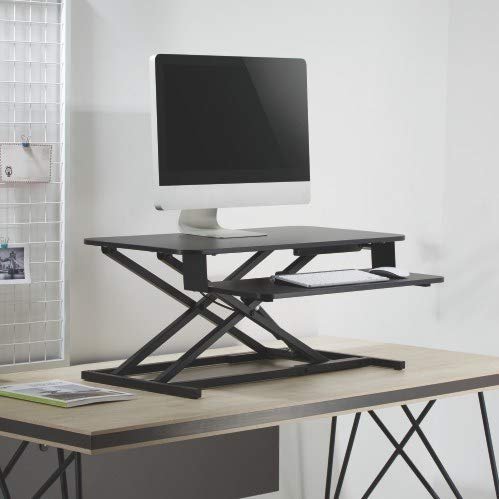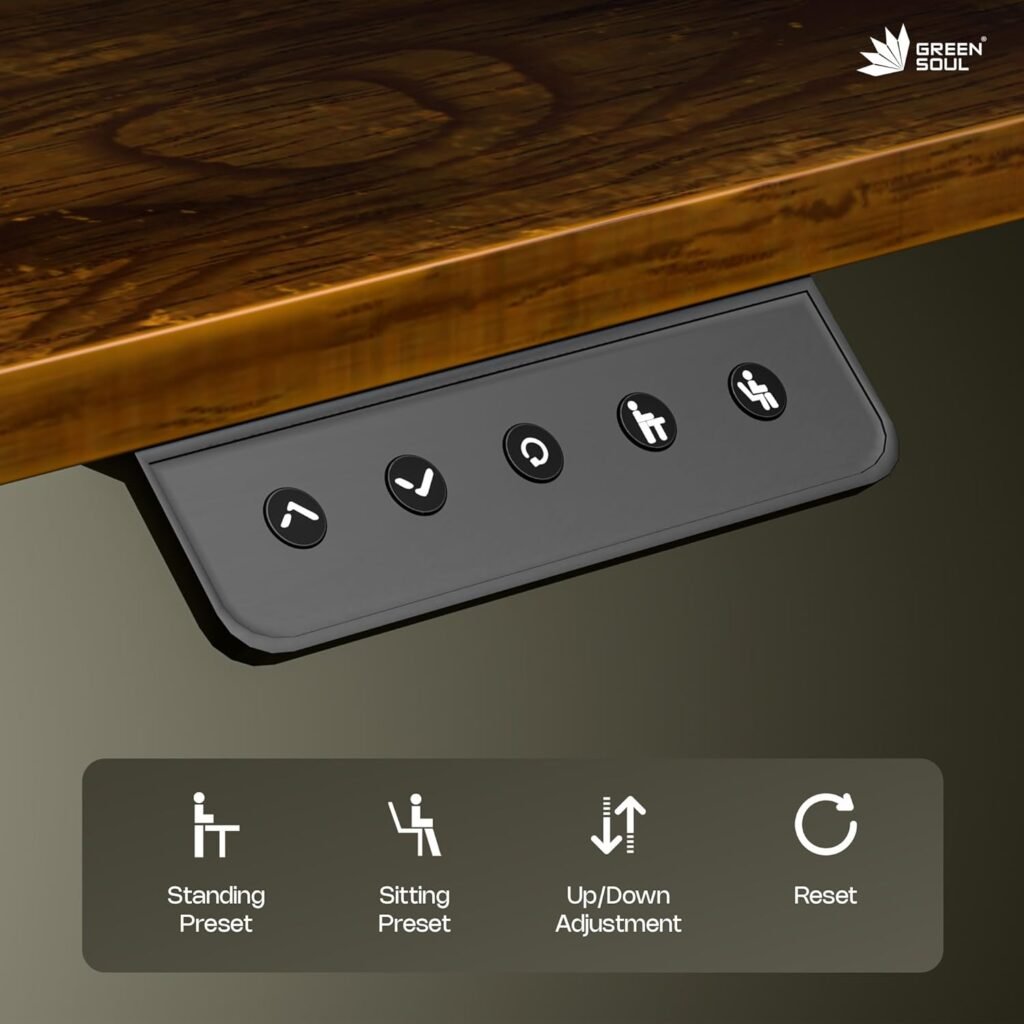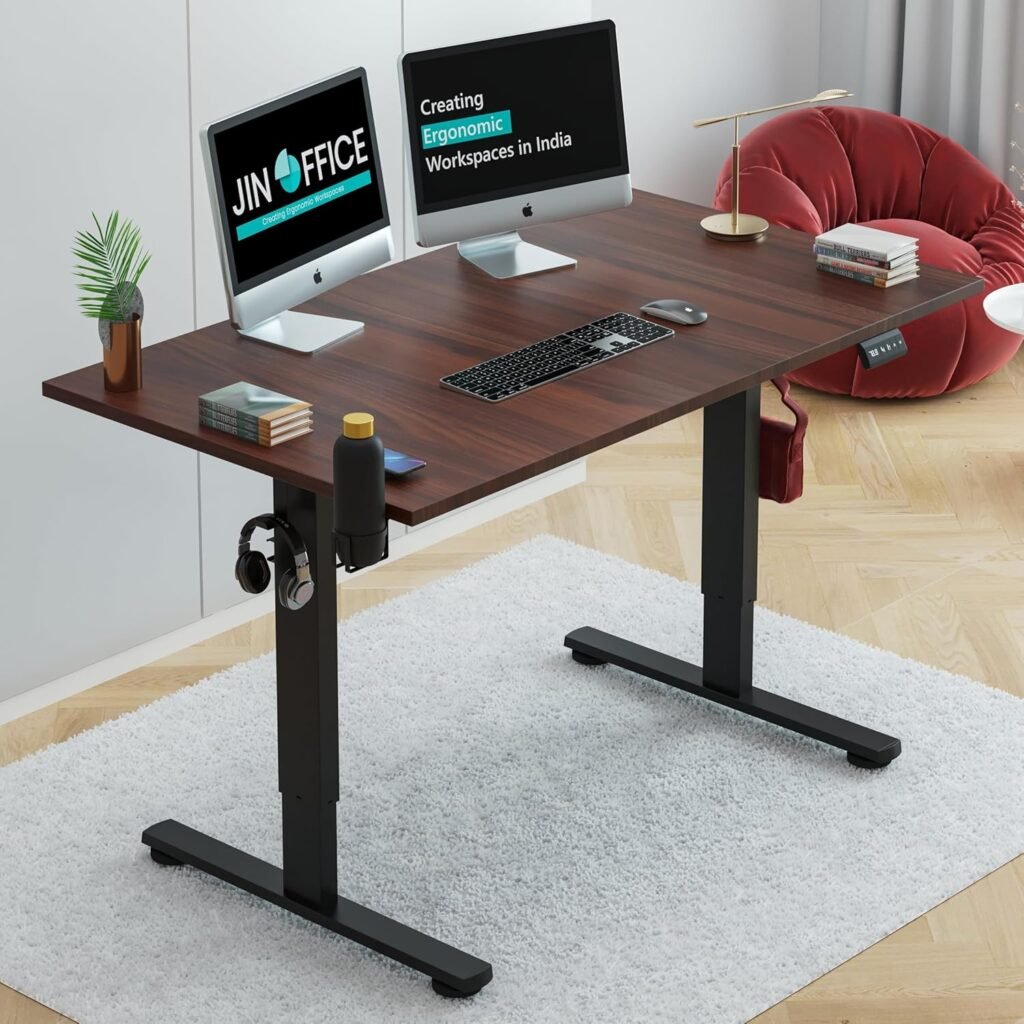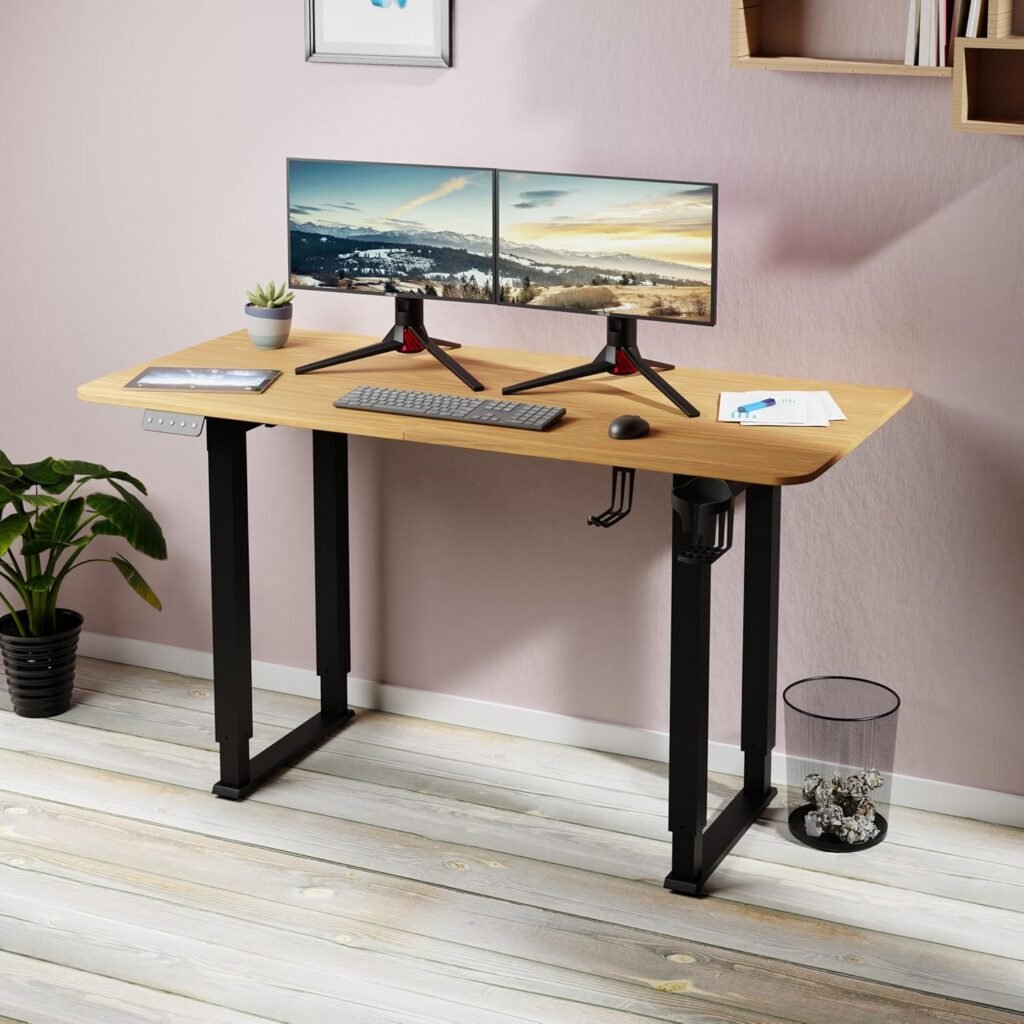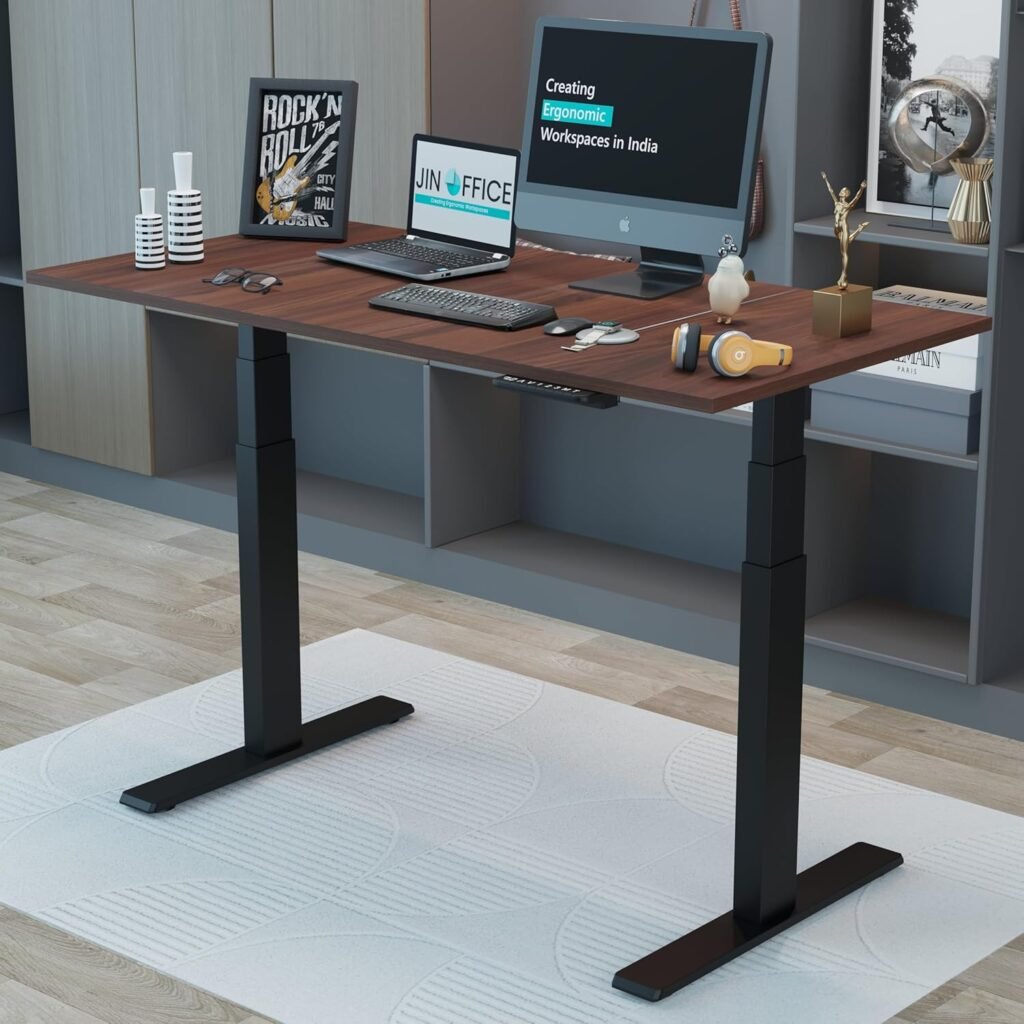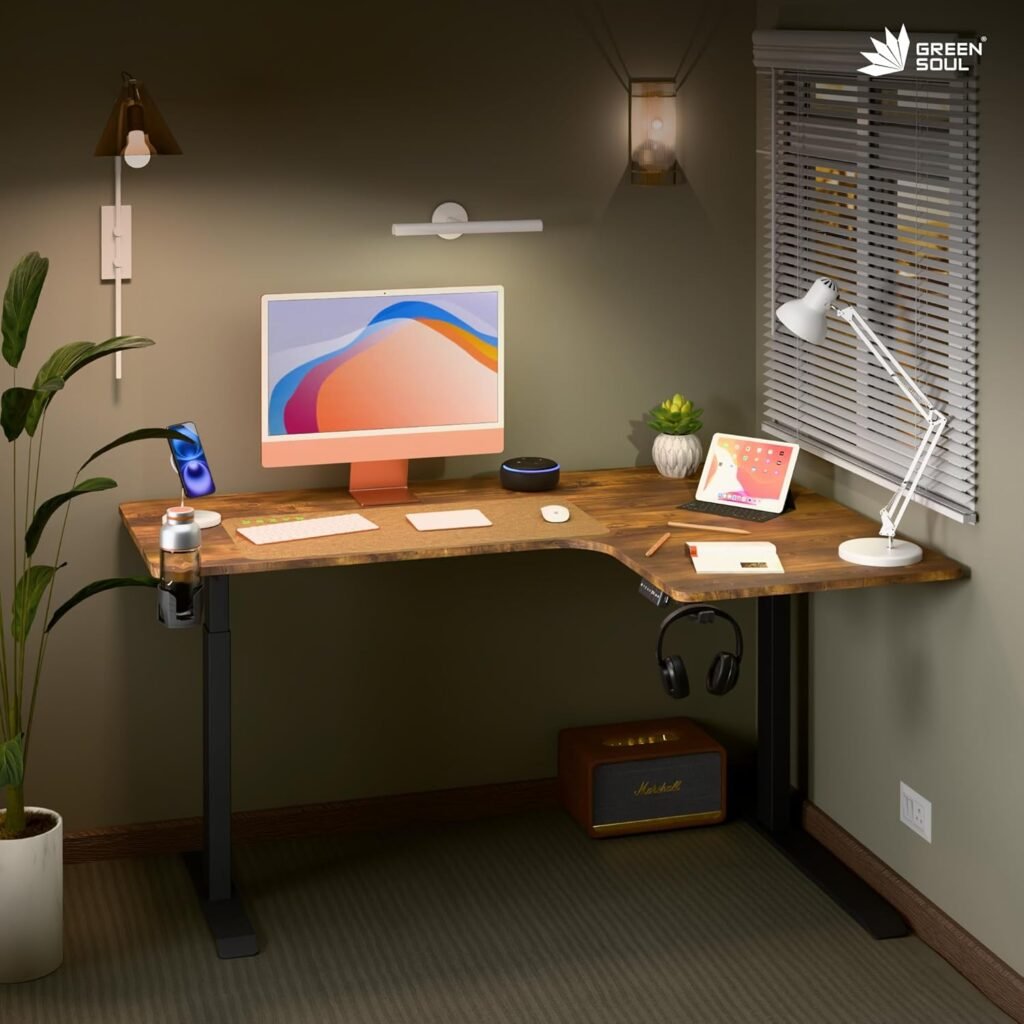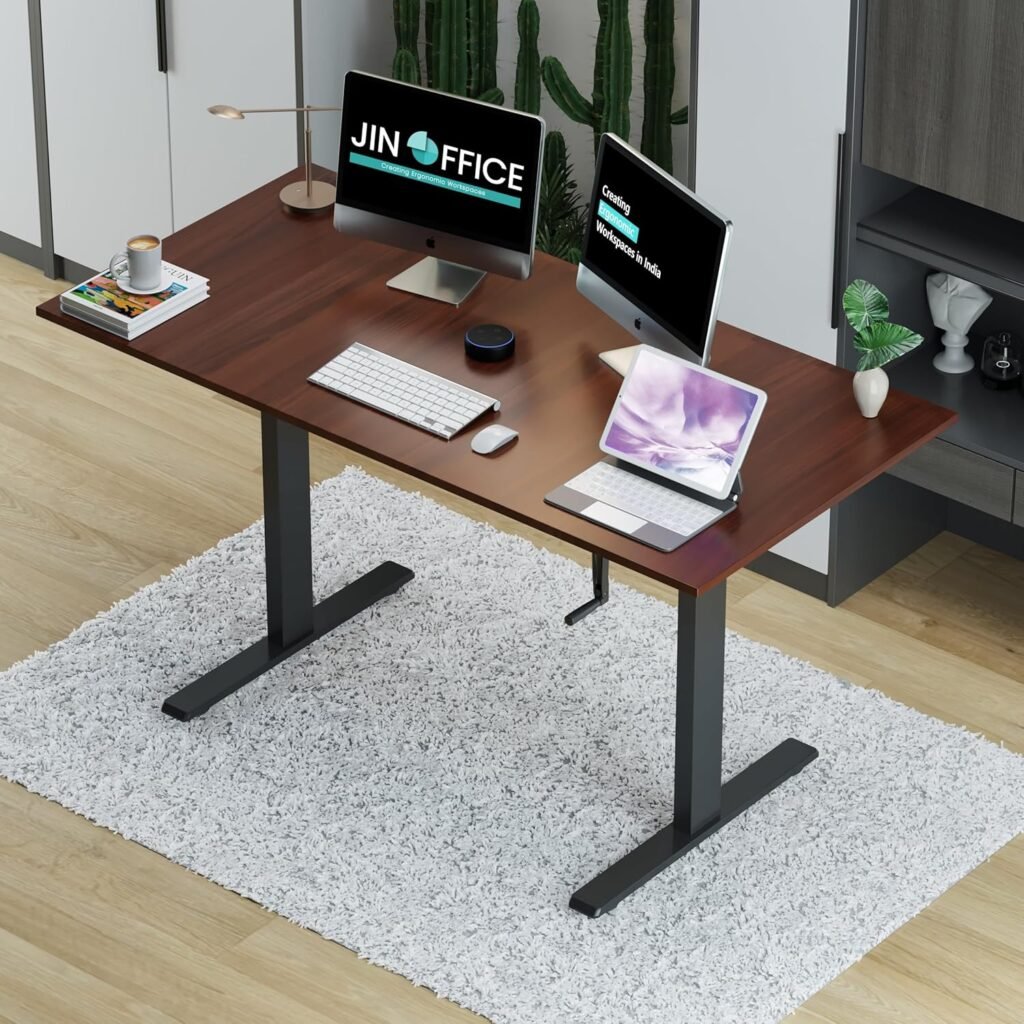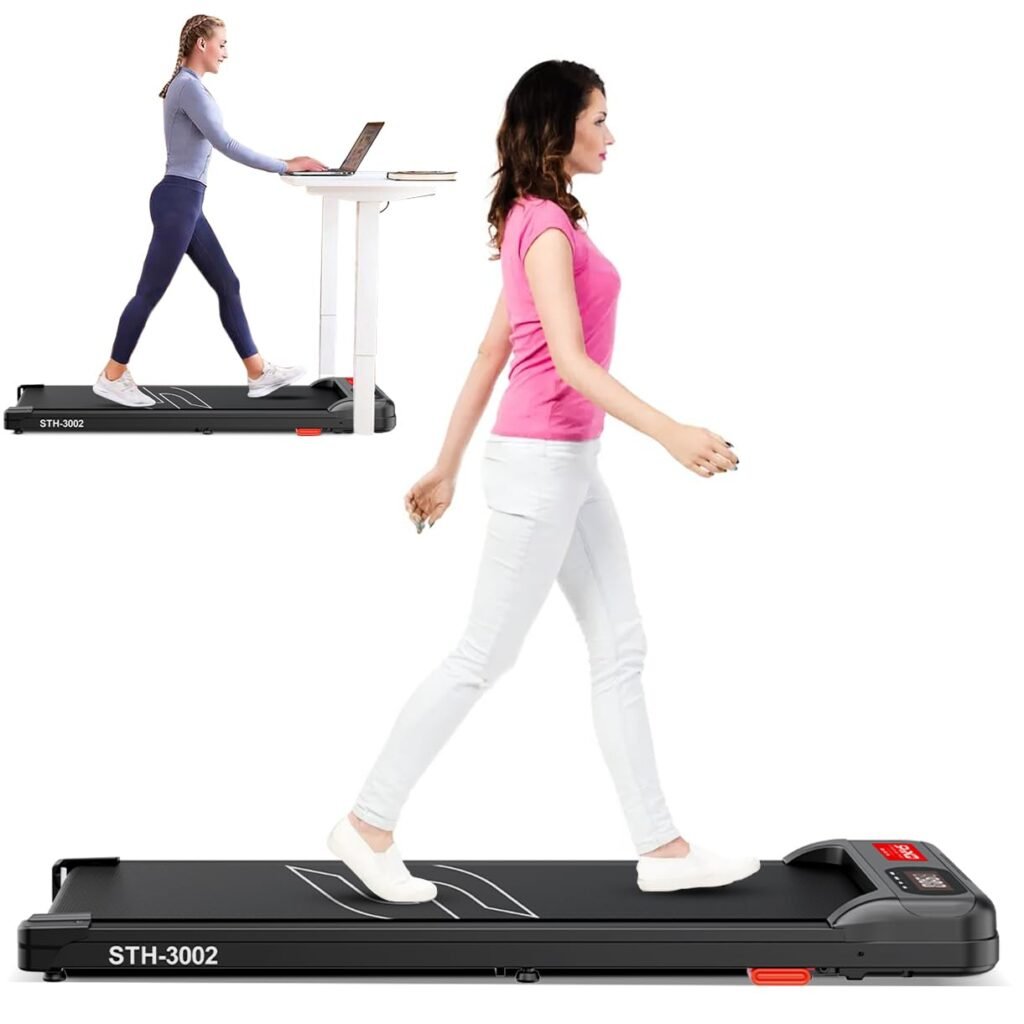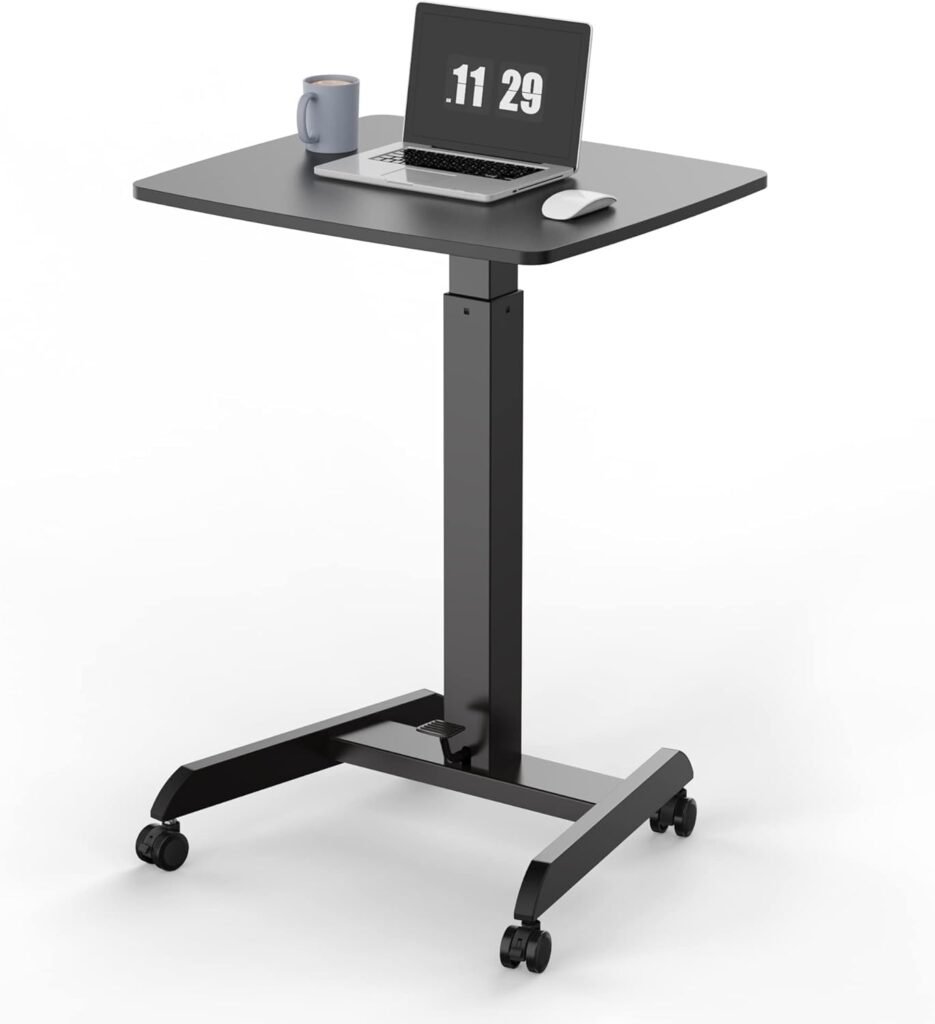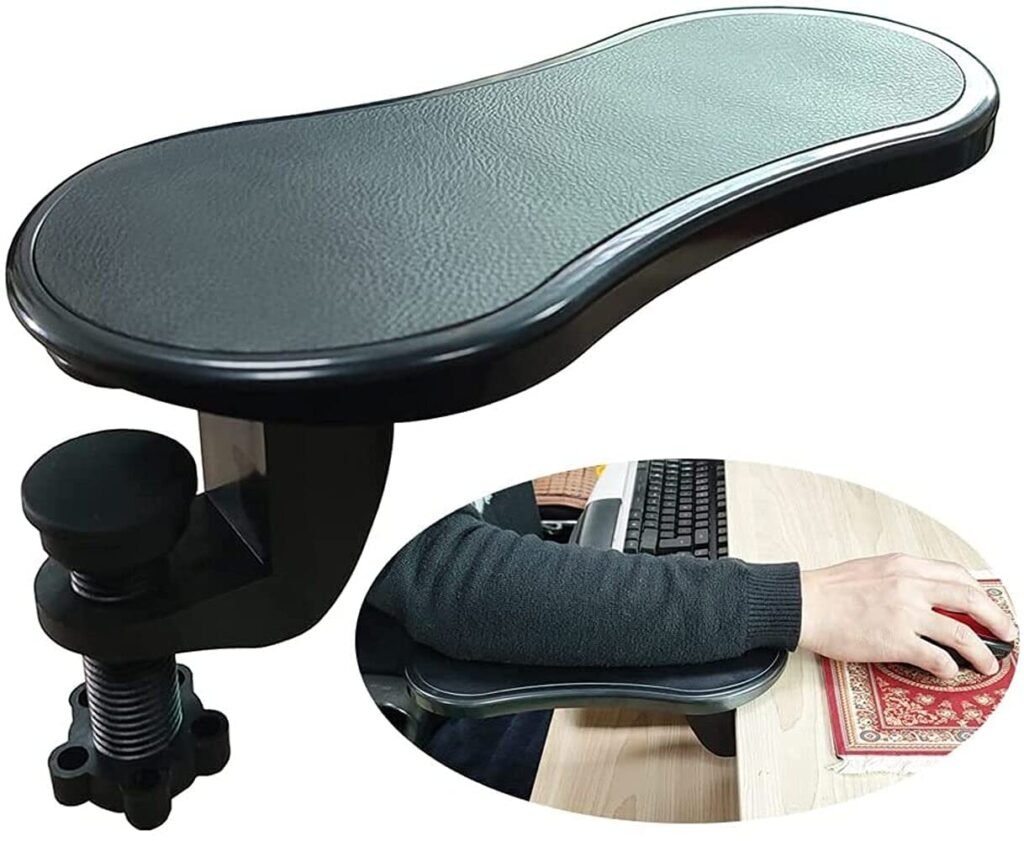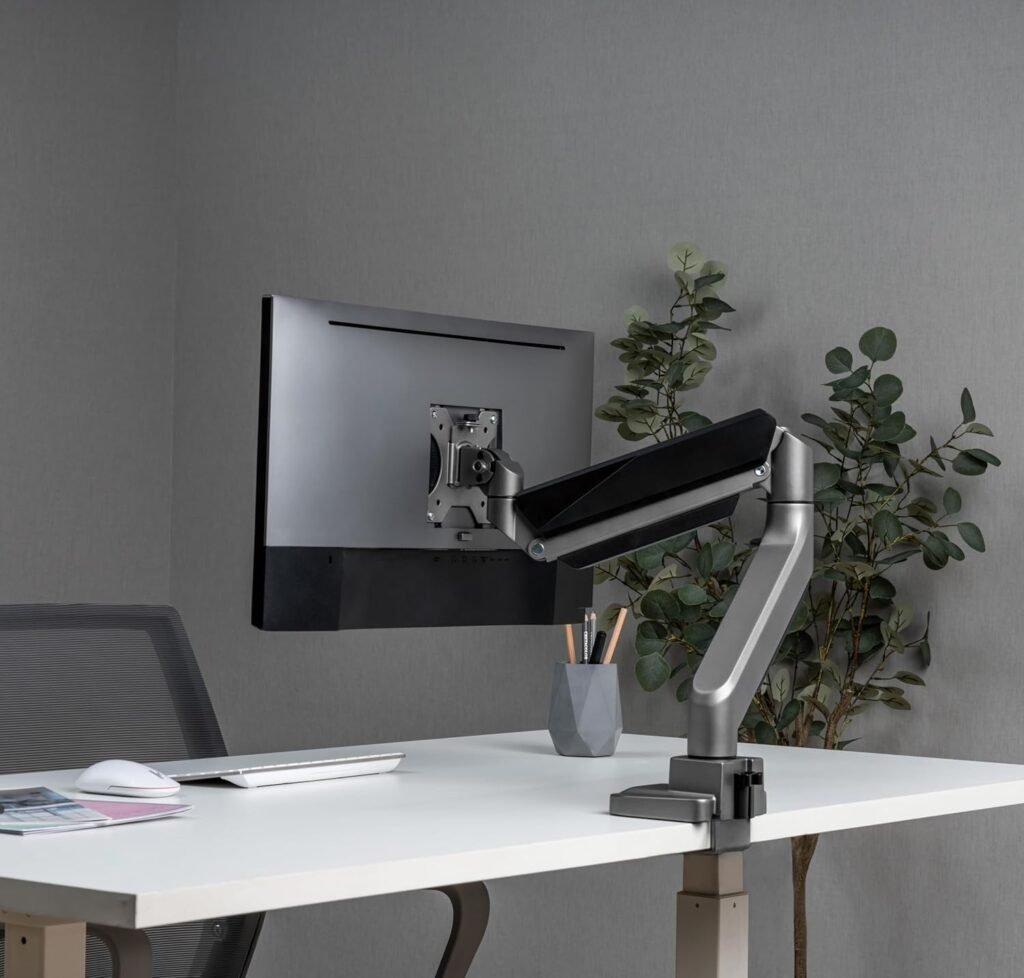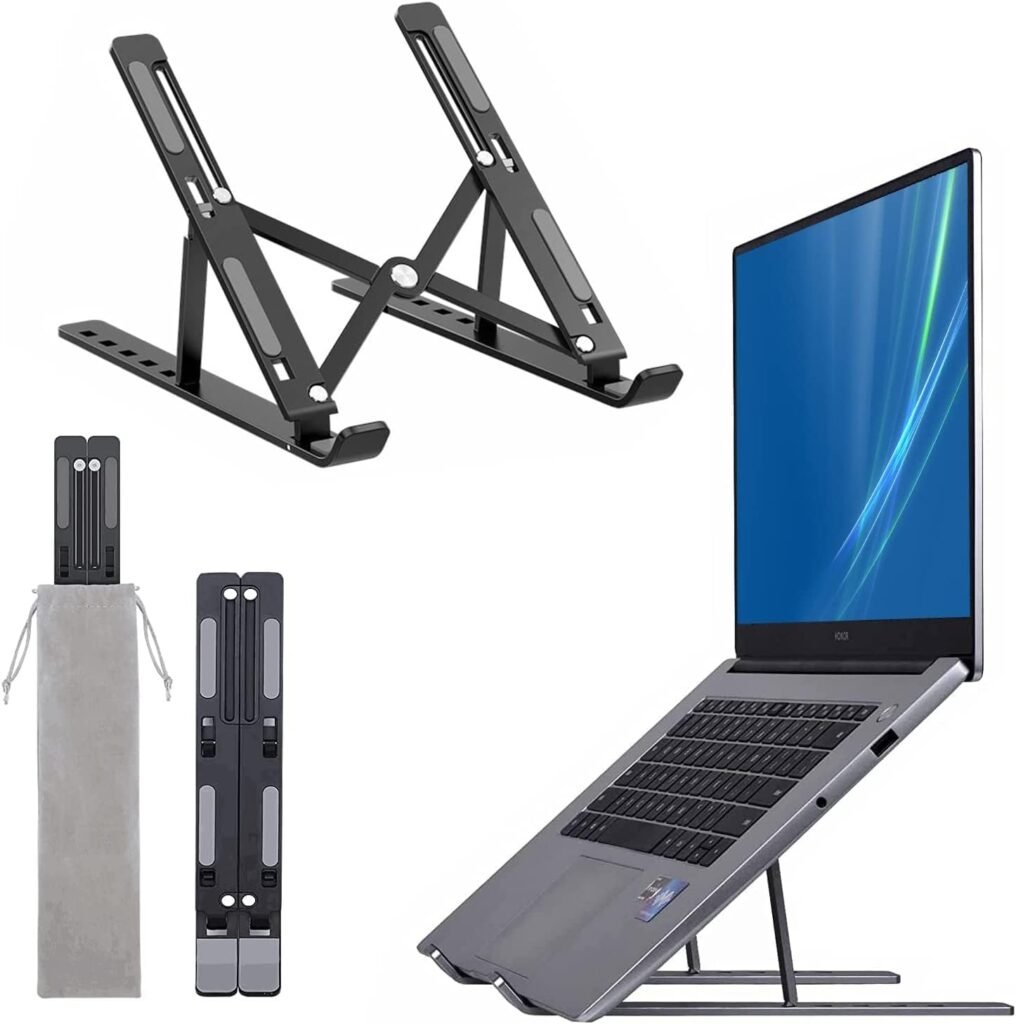Motorized Standing Desk Review, Price, Types, Pros & Cons, and Best Alternatives: Modern work culture in India has changed dramatically over the last few years. With remote working becoming mainstream and office ergonomics gaining attention, sitting for 8–10 hours straight has turned into a serious health concern. From IT professionals in Bengaluru to startup founders in Delhi and freelancers across Tier 2 cities, more and more people are looking for ways to reduce prolonged sitting.
Enter the motorized standing desk – a smart, ergonomic solution that lets you alternate between sitting and standing at the push of a button. This blog will take you through everything you need to know about motorized standing desks in India — from price and types to pros & cons, alternatives, user reviews, statistics, and FAQs.
Motorized Standing Desk Review
What is a Motorized Standing Desk?
A motorized standing desk (also known as an electric sit-stand desk) is a height-adjustable workstation powered by electric motors. With the help of a digital control panel or keypad, you can raise or lower the desk to your preferred height within seconds.
Unlike manual crank desks, motorized desks are faster, smoother, and effortless to use. Many models include memory presets (to save sitting/standing heights), anti-collision sensors, and sturdy frames that can carry heavy setups like dual monitors and large desktops.
In simple terms, it’s a desk that adapts to you — not the other way around.
Who is it for?
Motorized standing desks are not just for tech geeks or premium offices. They are suitable for:
- Remote workers & freelancers – Writers, designers, coders working from home.
- Corporate employees – Professionals spending long hours on spreadsheets or meetings.
- Health-conscious individuals – People with back or neck pain from prolonged sitting.
- Startups & small offices – Teams wanting to boost employee productivity and comfort.
- Students & content creators – For studying, video editing, or streaming setups.
Why a Motorized Standing Desk?
The average Indian professional spends 9–10 hours a day sitting. Research links prolonged sitting with back pain, poor posture, fatigue, reduced productivity, and even lifestyle diseases. A standing desk isn’t a magic cure, but it encourages more movement by allowing you to switch between sitting and standing during the day.
Key benefits include:
- Reduces strain on the back and neck.
- Improves blood circulation and posture.
- Helps maintain energy and focus for longer hours.
- Boosts productivity in many users.
Types of Motorized Standing Desks in India
1. Desk Converters / Sit-Stand Platforms
- Description: Portable platforms that sit on top of your existing desk and lift your monitor and keyboard.
- Price Range: ₹3,000–₹12,000
- Pros: Budget-friendly, easy to install, no need to replace desk.
- Cons: Limited space, less stability at higher levels.
- Best For: Beginners, renters, and those testing the concept.
2. Single-Motor Electric Standing Desks
- Description: A full desk with one motor controlling both legs through a mechanical system.
- Price Range: ₹15,000–₹25,000
- Pros: Affordable, simple design.
- Cons: Noisier, slower height adjustment, lower weight capacity.
- Best For: Home users with lighter setups (single monitor, laptop).
3. Dual-Motor Electric Standing Desks
- Description: Two motors, one per leg column, offering better power and stability.
- Price Range: ₹20,000–₹35,000
- Pros: Smooth, quiet, higher weight capacity (up to 120kg).
- Cons: Slightly more expensive.
- Best For: Professionals with dual monitors, desktops, or heavier equipment.
4. Three-Stage Column Desks
- Description: Premium electric desks with an extended height range.
- Price Range: ₹25,000–₹45,000+
- Pros: Suitable for tall/short users, highly stable.
- Cons: Higher cost.
- Best For: Shared workspaces, tall individuals, or ergonomic perfectionists.
5. Multi-Leg & L-Shaped Standing Desks
- Description: Advanced desks with 3–4 motors for larger or corner workstations.
- Price Range: ₹40,000–₹90,000+
- Pros: Massive work surface, supports multi-monitor and office setups.
- Cons: Expensive, heavy, not portable.
- Best For: Offices, studios, or professionals needing large desks.
Price Overview in India
- Converters: ₹3,000–₹12,000
- Single-Motor Desks: ₹15,000–₹25,000
- Dual-Motor Desks: ₹20,000–₹35,000
- Premium / Imported: ₹40,000–₹90,000+
Comparison Table
| Model Type | Price Range (₹) | Best For |
|---|---|---|
| Converter / Riser | 3,000 – 12,000 | Beginners, small spaces, renters |
| Single-Motor Desk | 15,000 – 25,000 | Light setups, budget users |
| Dual-Motor Desk | 20,000 – 35,000 | Heavy setups, frequent usage |
| Three-Stage Desk | 25,000 – 45,000+ | Tall users, shared workstations |
| Premium Imported | 40,000 – 90,000+ | Offices, premium reliability |
Pros and Cons of Motorized Standing Desks
Pros
- Encourages movement, reduces long sitting hours.
- Can ease back and neck pain.
- Easy height adjustment with memory presets.
- Durable and stable (dual-motor models).
Cons
- Higher cost compared to regular desks.
- Cheaper models may wobble or malfunction.
- Requires discipline — many users stop standing after some time.
- Standing too long without breaks can also cause leg discomfort.
Motorized Standing Desk Alternatives
Also, see: 70mai Dash Cam Alternatives.
1. Manual Crank Standing Desks
What it is:
A standing desk with a hand crank that you rotate to adjust the height. It’s fully mechanical — no motors, no electricity.
Why choose it:
- More affordable than electric desks.
- No risk of motor failure, long-lasting and low maintenance.
- Good for users who don’t change desk height frequently.
- Eco-friendly — no electricity usage.
Price Range in India: ₹10,000 – ₹20,000
2. Treadmill Desks / Walking Desks
What it is:
A hybrid workstation that combines a desk with a walking treadmill. Lets you walk at a slow pace while working.
Why choose it:
- Keeps you active and burns calories during work.
- Reduces health risks linked to long sitting.
- Excellent for health-conscious professionals or long-hour workers.
- Boosts energy and productivity through movement.
Price Range in India: ₹40,000 – ₹1,50,000 (desk + treadmill combo)
3. Fixed Standing Desk + Drafting Stool
What it is:
A tall, non-adjustable desk paired with a high drafting stool. You stand most of the time and use the stool to rest when needed.
Why choose it:
- Simple, stable, and affordable compared to motorized desks.
- No moving parts — no maintenance issues.
- Good for artists, architects, studios, and creative professionals.
- Lets you balance standing and sitting without spending too much.
Price Range in India: ₹6,000 – ₹25,000 (desk + stool set)
4. Ergonomic Accessories
What it is:
Enhancements that improve comfort and posture without changing your desk. Examples include:
- Adjustable Arm Rest Pads for Desk
2. Monitor arms (adjust screen height)
3. Anti-fatigue mats (reduce leg strain while standing)
- Footrests (help circulation while sitting/standing)
- Laptop stands (bring laptop to eye level)
Why choose it:
- Cheapest way to improve desk ergonomics.
- Reduces strain on neck, shoulders, and legs.
- Works with regular desks or standing desks.
- Great for students, budget-conscious users, and offices.
Price Range in India: ₹500 – ₹5,000
What Users in India Say (Review Highlights)
- Many professionals report less back pain and better focus after switching.
- Freelancers enjoy the flexibility of alternating between sitting and standing.
- Offices implementing standing desks often see a productivity and energy boost.
- On the flip side, users of budget desks often complain about wobbling at higher heights.
- Some buyers admit they use the standing mode less after initial excitement — behavior change is crucial.
Key Statistics
- The Indian standing desk market is growing at ~8% annually, reflecting strong adoption. Source
- Studies suggest only about one-third of users continue standing regularly after purchase. Source
- On average, workers who own standing desks stand for about 36% of their workday. Source
- Short-term trials show up to 60% of users feel happier and more energetic when alternating between sitting and standing. Source
FAQs
Q1: Are motorized desks worth it?
Yes, especially if you work long hours and will consistently use the sit-stand feature.
Q2: Single motor vs dual motor — which is better?
Dual motor is smoother, quieter, and more stable. Recommended for most professionals.
Q3: Can standing desks cure back pain?
Not a cure, but they help reduce sitting-related strain when combined with posture corrections and breaks.
Q4: What warranty should I expect?
2–5 years on motors and frames is common. Always check the after-sales service in India.
Q5: Are Indian brands good enough?
Yes, several Indian brands now offer dual-motor standing desks under ₹30k with good performance.
Our Recommendation
If you are serious about health, posture, and productivity, a motorized standing desk is a worthwhile investment. Dual-motor models provide the best balance of cost, stability, and convenience for Indian users.
However, if you’re unsure or working with a limited budget, start with a desk converter to test the waters. Remember, the desk itself won’t magically improve your health — consistent usage, alternating between sitting and standing, and using ergonomic accessories like anti-fatigue mats are key.
Pro tip: Aim for 30–40% of your workday standing instead of all-day standing. Balance is the secret to making this ergonomic investment pay off.

